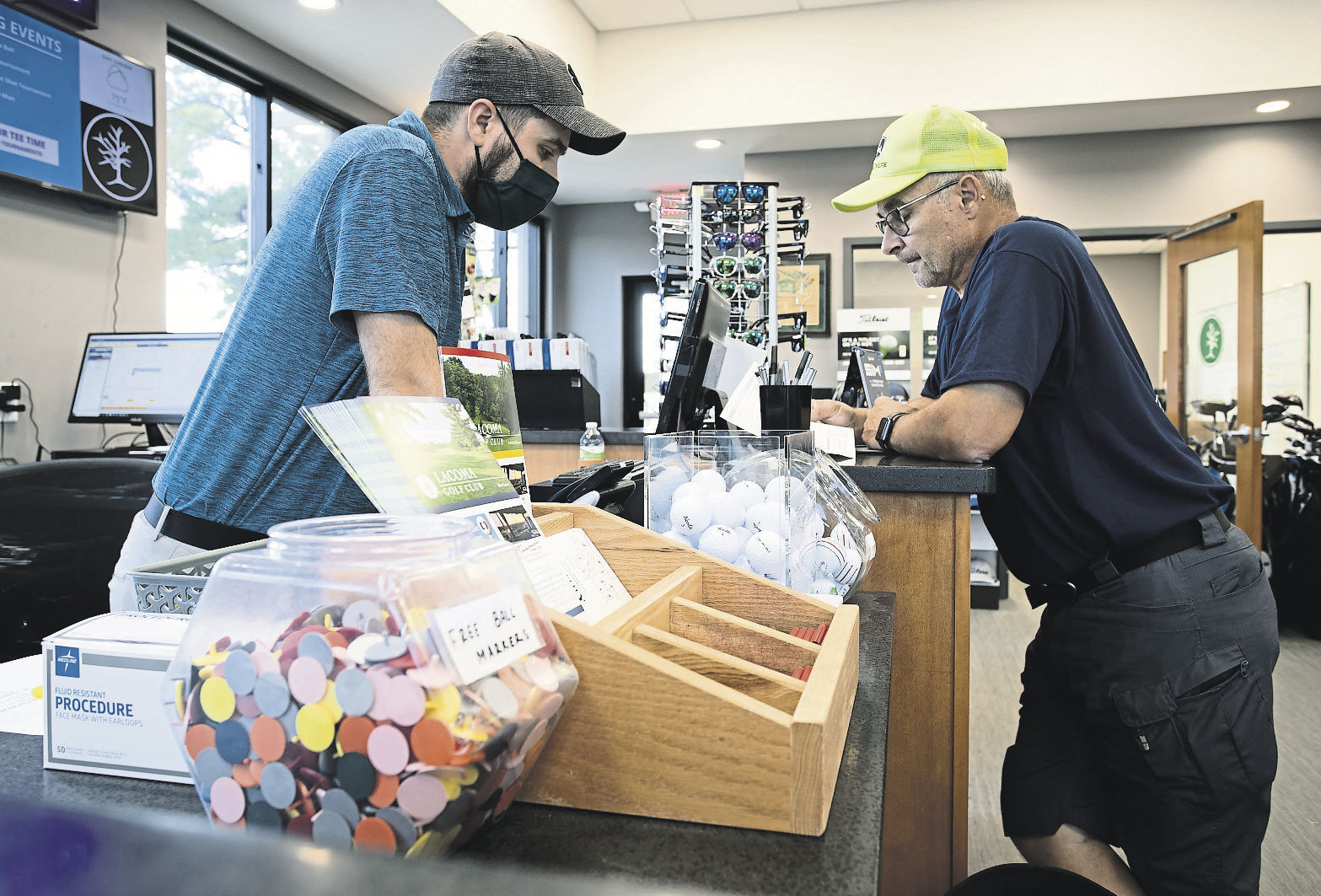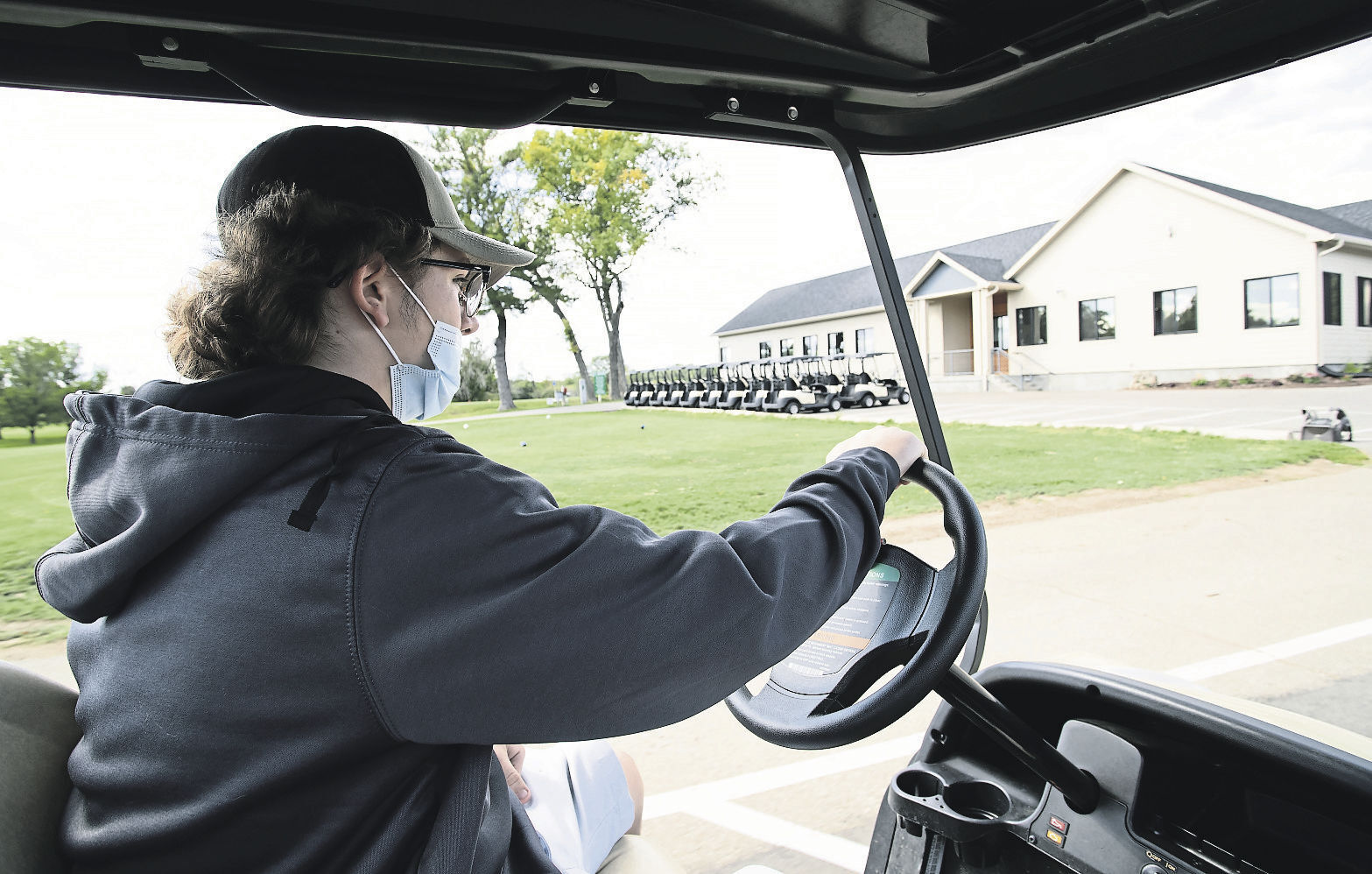In the midst of a prolonged workforce shortage, the leaders at Lacoma Golf Club realize that they are among the lucky ones.
The East Dubuque, Ill., business has largely avoided the hiring woes that have burdened most other employers in recent years.
“Throughout the summer, I’d say we’ve been pretty lucky and we’ve been able to hire the staff we needed,” said general manager Alex Lange. “I think it helps that we’re a seasonal business, and it also helps that employees are able to work outside, which a lot of people prefer.”
Even the fortunate businesses are facing some struggles these days, however.
Lange said the start of a new school year has impacted the “vast majority” of staff members at Lacoma, leading some to strip back their weekly hours and others to step away from their roles entirely.
“Business really doesn’t slow down much in September, but we’ve lost a lot of our workers,” Lange said. “It is a tricky situation. We have many people doing multiple jobs. For our management staff, they went from working 30 to 40 hours per week to working 40 to 50. Some are even working 60.”
Throughout the tri-state area, the beginning of the school year has thrown yet another wrinkle in the continuing and ever-evolving hiring struggles in the tri-states.
In the case of Lacoma, the school year introduced workforce issues for an employer that had largely avoided them. In many other cases, however, the changing of the seasons has exacerbated existing workforce shortages.
Anthony Lehmann, who owns two Burger King restaurants in Dubuque, said the start of a new school year has had a notable impact on operations.
“Not having (students) available as much reduces the amount of business we can do,” Lehmann said.
Since the start of school, his Burger King restaurants have scaled back their hours. The location on Locust Street, which had previously reopened the dining room for carry-out services, was forced to close that space again and return to drive-thru only services.
Lehmann noted that shifts in the student-aged workforce were evident before the start of the school this year.
“When COVID started, a lot of parents made their kids quit,” he recalled. “They were concerned about them and they didn’t want them out working with the public.”
Rick Dickinson, president and CEO of Greater Dubuque Development Corp., framed the start of the school year as just one factor in the complex landscape of the current labor market.
“Everyone looks for one thing that is causing workforce challenges,” he said. “As it relates to part-time workers, and how many students are working, that is definitely having an impact on the workforce right now. But it is never one thing, it is multiple things.”
Perhaps the most notable thing about the start of school is which employers it is affecting. Dickinson suggested the loss of students will hurt the companies that already have been impacted the most by worker shortages.
“That particular population staffs hospitality businesses — restaurants, bars, hotels — more than any other segment of our market,” he explained. “They have already been hit the hardest, in terms of operations and in terms of workforce.”
Mike Schaul, co-owner at Express Employment Professionals in Dubuque, agreed that the hospitality industry is being hit hard. But that isn’t the only part of the economy that’s hurting.
“It’s tightening things up in retail, too,” he said. “Plus, we had a lot of college kids who were working in manufacturing. It always impacts companies when kids return to school, but I think it’s a bigger impact now than in previous years because of the labor shortage (that already existed).”
Schaul acknowledged there are multiple dynamics in play as summer transitions to fall.
For instance, even though some college students are leaving town to attend school elsewhere, a sizable chunk of out-of-towners have returned the area to attend Dubuque-based colleges and universities.
Even so, he believes that fewer people are willing to juggle school-related obligations and work at the same time.
“There are a lot of kids who are committed to the classroom and a number who are also playing sports in college,” he said. “That eats up the majority of their time.”
For employers like Lehmann, flexibility is the name of the game as many workers return to class.
“We know for many kids, this is a sideline for them, but we want to work with them as much as possible to keep them here,” Lehmann said.



